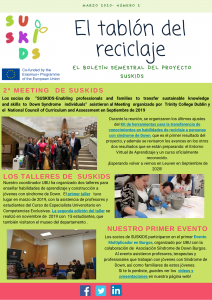8 hints of SUSKIDS Final Conference
How to use technologies to transfer sustainable skills to Down Syndrome Individuals
SUSKIDS final conference took place virtually last 14th September, organized by our partner University College Leuven-Limburg, particularly the Expertise Centre Inclusive society.
Inclusion is, indeed, one of the Sustainable Development Goals (SDGs) established by the United Nations’ 2030 Agenda, which are to address all three dimensions of sustainable development (environmental, economic and social).
In this post, we will highlight 8 key points of the Conference, which was aimed at fostering inclusion of people with Down Syndrome through their training in sustainable skills and recycling .
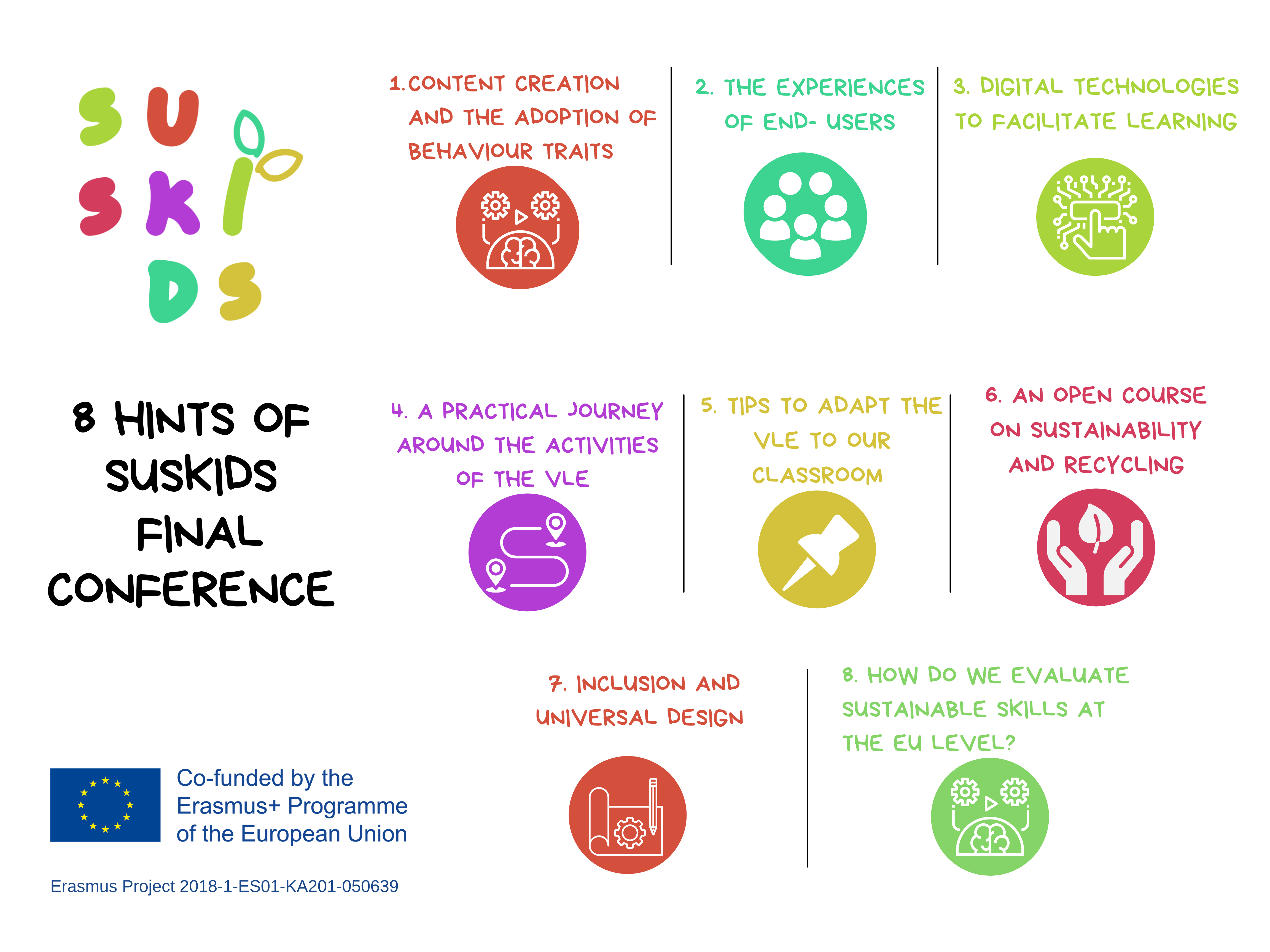
Content creation and the adoption of behaviour traits
The main challenge in creating Outputs of our project, specially the the Virtual Learning Environment, and the Pilot course, was to motivate the final users: people with Down Syndrome. The Project is initially aimed at children at school age, but for all the consortium it was important to generate contents that could be learnt and applied with people with Down syndrome at older ages.
Our partner Trinity College Dublin, explained the principles that guided the development of the contents, based on the practical experience of our partners, and a systematic literature revision.
And, above all, the aim of keeping the interest of the end users on environmental issues.
You can download the slideshow here
The experiences of end- users
Our partner Asociacion Sindrome Down Burgos had a key role during our Project, piloting the Virtual Learning Environment in their classroom with students at different ages. Thanks to the usability and the accessibility of the platform, most of the students could use it in an autonomous way, which is indeed one of the objectives of SUSKIDS. Some of them needed help from the teachers and facilitators, to log in the platform or to read the texts of the courses, which was eased by the automatic reader option implemented.
Most of the students testing the VLE were Down Syndrome children at school age, while other had different development diseases. This has demonstrated that the project results are transferable to other disabilities and also to individuals in other age ranges (teenagers or adults)
Check the video summarizing their experiences here
Digital technologies to facilitate learning.
People with disabilities have restricted access to education, transport, housing and technology. One of the reasons if the increasing digitalization in all spheres of life, which occurs in addition at a lighting speed. Thus, e-inclusion is required to ensure that everyone can participate in digital societies, to fulfil the “leave no one behind” principle of the 2030 Agenda.
But, what is actually e-inclusion, and how can be achieve it?
Take a look to the video by our partner UCLL to find it out
A practical journey around the activities of the VLE
During this workshop, our coordinator Sara Gutierrez explained the objective of the Virtual Learning Environment, and the main features it has to ensure the accessibility and the usability, while providing useful knowledge to the students in four different strands: Environment , Rubbish, What to do with Rubbish, and Construction and Environment.
Check the video to take a small trip to our Virtual Learning Environment
Tips to adapt the VLE to our classroom
Would you like to use our VLE in our classroom? Our developer partner, Bjäland, explained during the conference how an educational centre can sign up and access the designed courses and the activities.
The arrangements are detailed in this video.
Once you have your school created in the platform, you can add users, in the roles of tutors (teachers) and students, and manage them, enrolling students in the courses or assigning tutors to the students. Thanks to the slideshow explained by our partner KVeloce, you will see how easy it is.
See slideshow on user creation and management
An open course on sustainability and recycling
Our partner NCCA from Ireland has created an Open Course for Junior Cycle, called Design for Sustainable Living, aimed at students with Down Syndrome, comprising evaluation activities from levels 1, 2 and 3 of the National Framework of Qualifications. To evaluate the course, they invited different teachers all abroad Ireland to take part in focus groups, carried out online due to COVID19 restrictions.
The participant teachers stated that the course was aligned with the vision of education for sustainable development, but not only that: they remarked other positive aspects and suggested additional improvements.
Inclusion and Universal Design
Universal Design for Learning is becoming mainstream in educational research and design but… how does it feel in the classroom?
Luke is a teacher at the Kingsborough Community School in Ireland, where he teaches construction studies and woodwork, among other subjects. For the last 4 years, he has been using Universal Design in his classes.
Luke hightlighted the huge improvement in the accessibility of his lessons, and one of the keys is that the Virtual Learning Environment does not become a barrier itself. But there are many other advantages.
How do we evaluate sustainable skills at the Eu level?
All along the EU, there is an increasing demand to mainstream green skills into education and training systems. In addition, the recognition of this knowledge at the EU level helps student to improve their self steem and their sense of achievement, while enhancing their employability and their opportunities for inclusion.
In addition, the Evaluation Guidelines will contribute to improve the coherence and consistency of educational systems in a way that is aligned with EU environmental and educational policies: the European Green Deal and the European Skills Agenda.
The complete slideshow is here for download.

© 2019 Suskids. Sustainability Skills for Down Syndrome. Funded by the Erasmus+ Programme. Gant Agreement 2018-1-ES01-KA201-050639.
The European Commission support for the producition of this publication does not constitute an endorsement of the contents which reflects the views only for the authors, and the Commission cannot be held responsible for any use which may be made of the information contained therein.





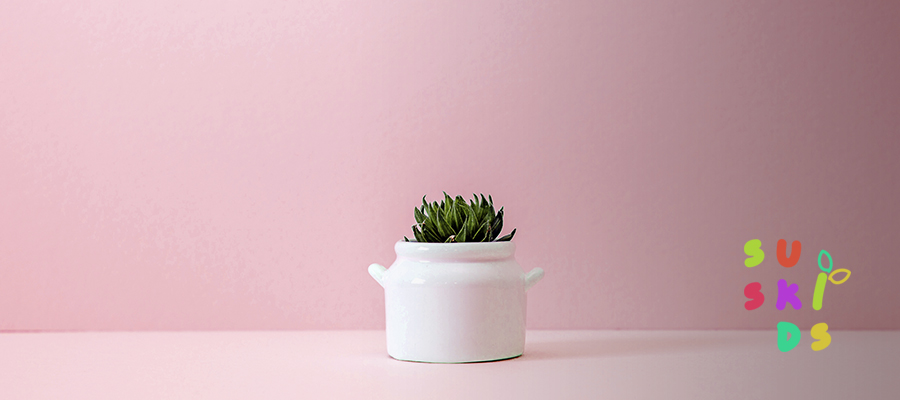


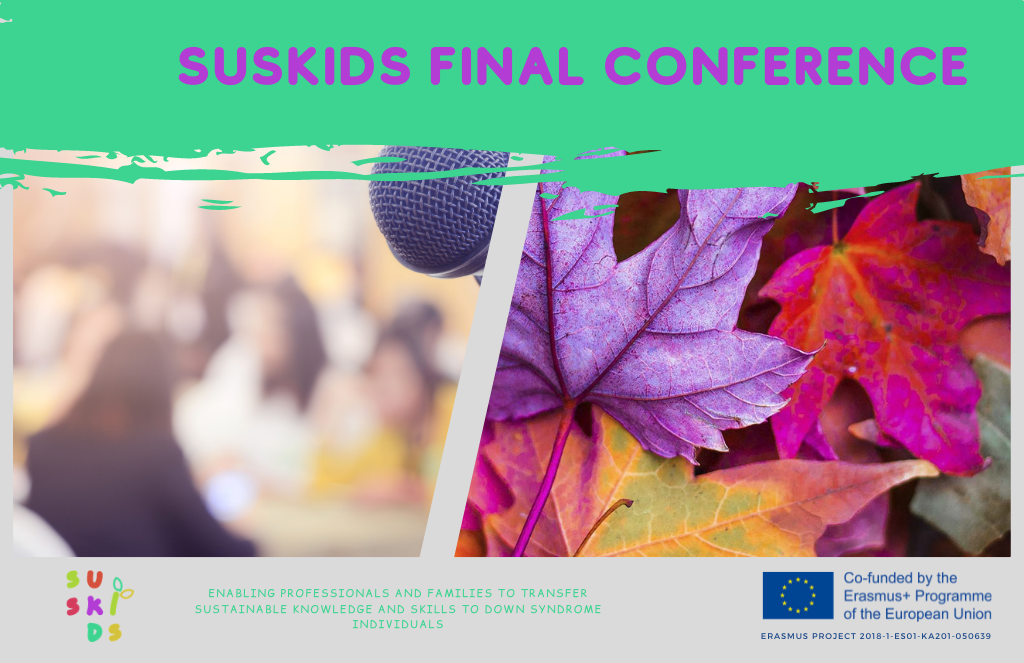
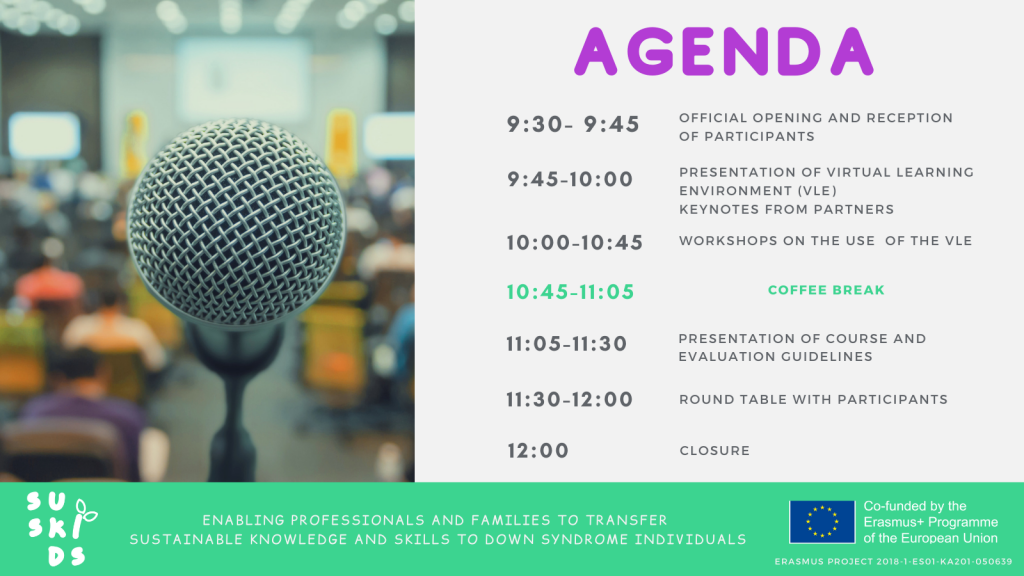
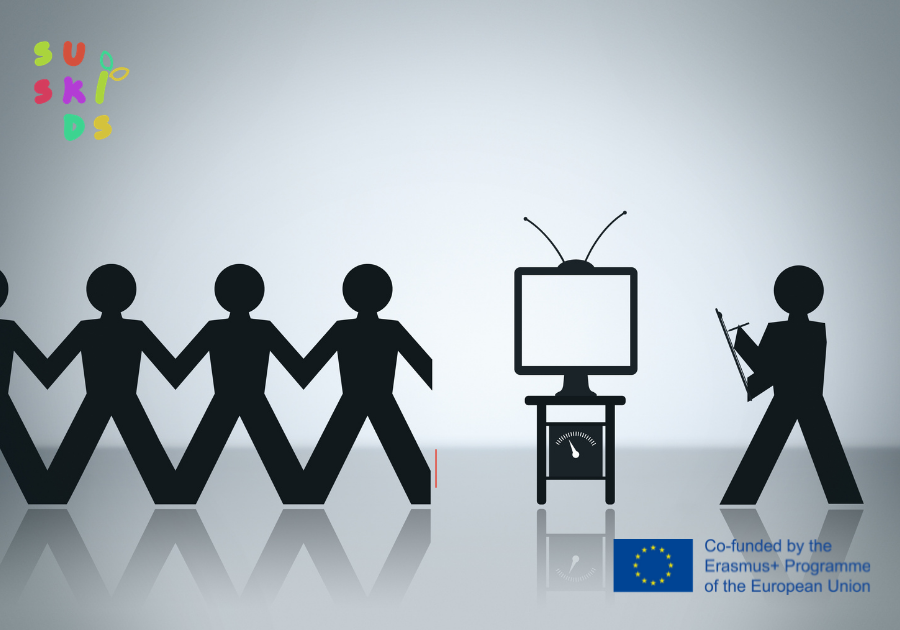

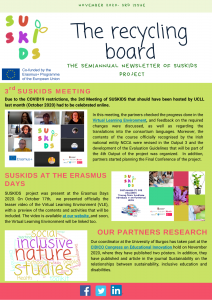
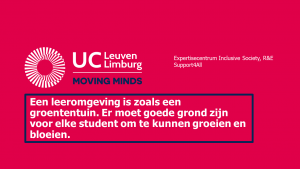
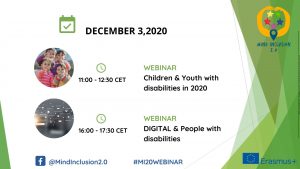
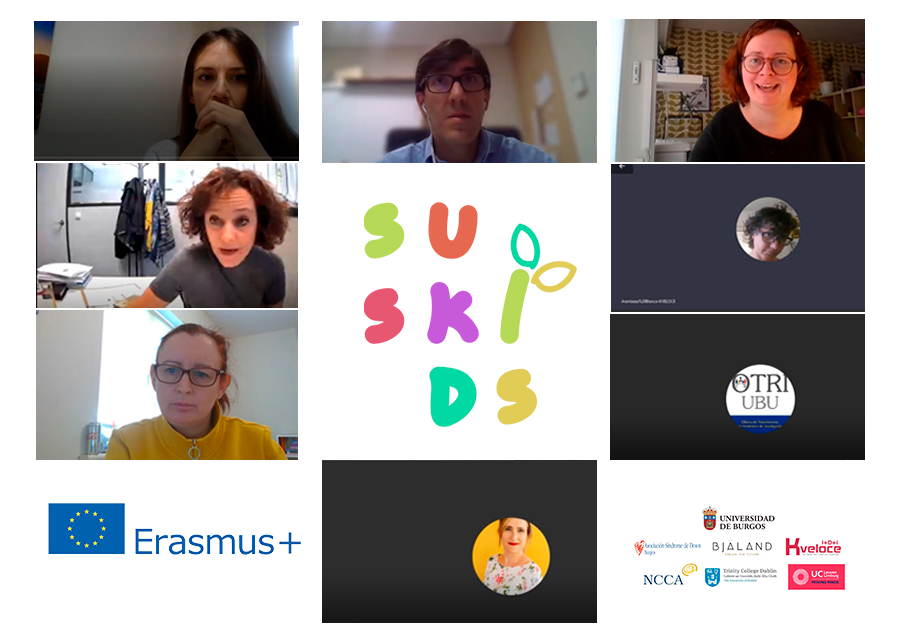
 Firstly, regarding our Virtual Learning Environment, our technological partner
Firstly, regarding our Virtual Learning Environment, our technological partner 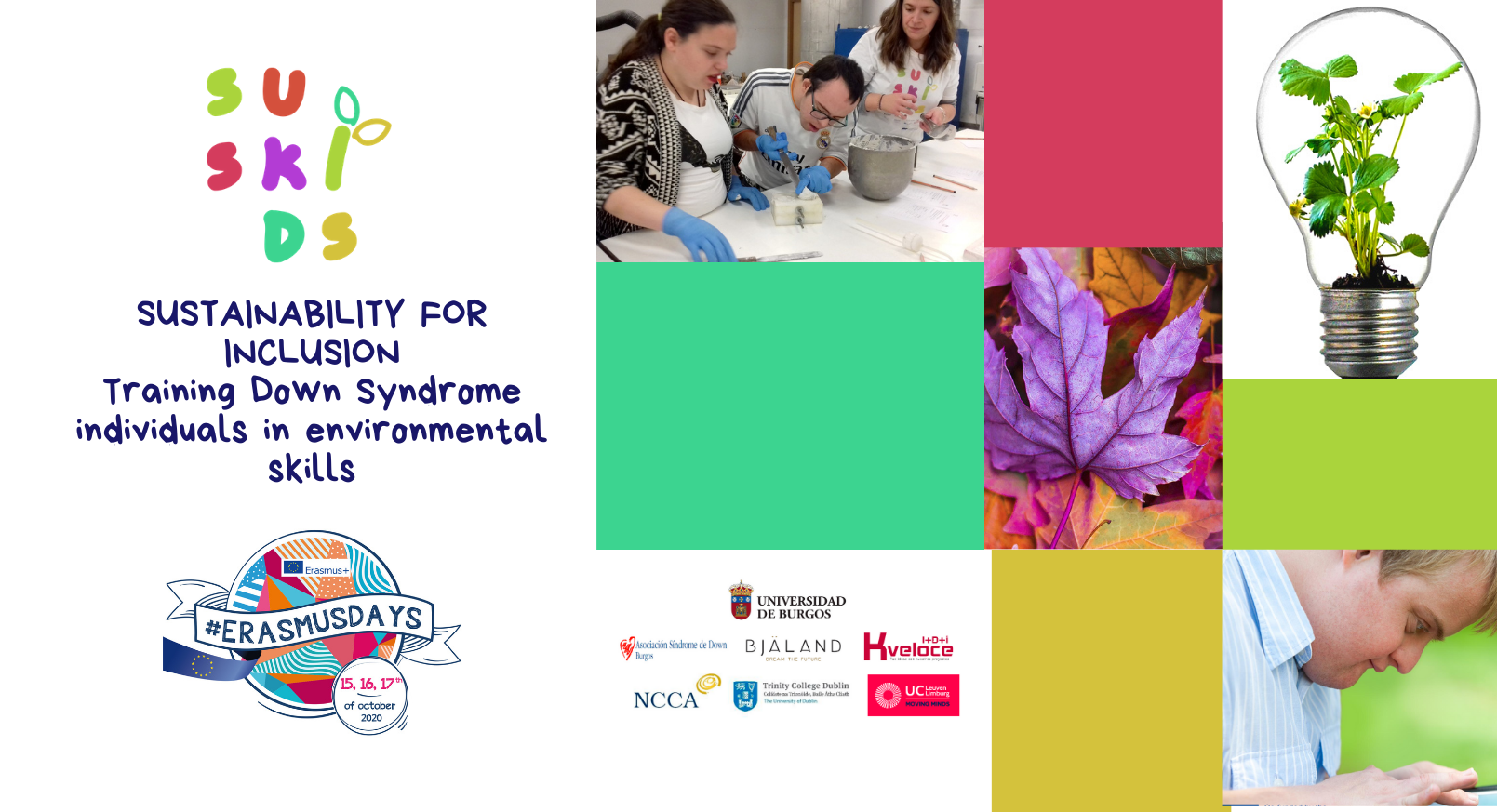
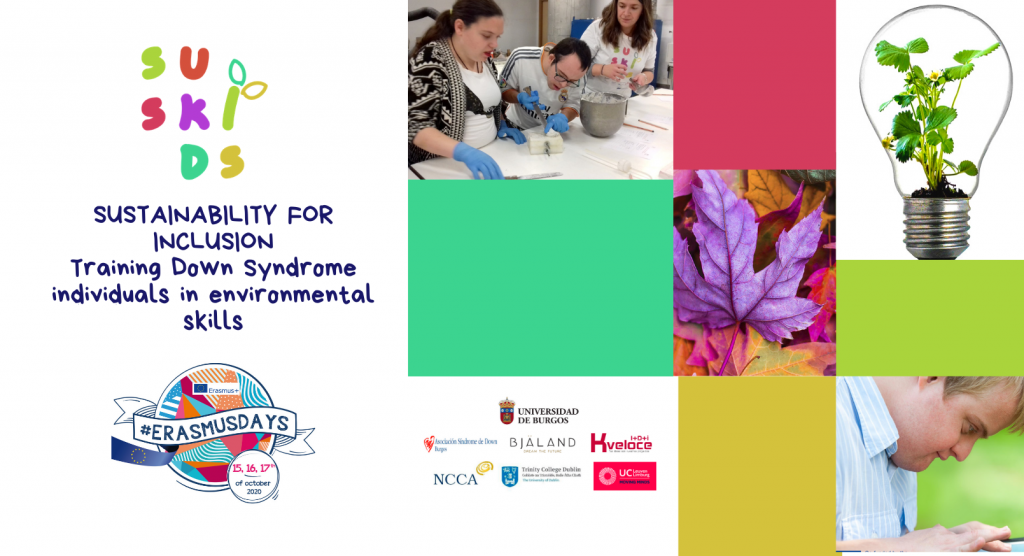
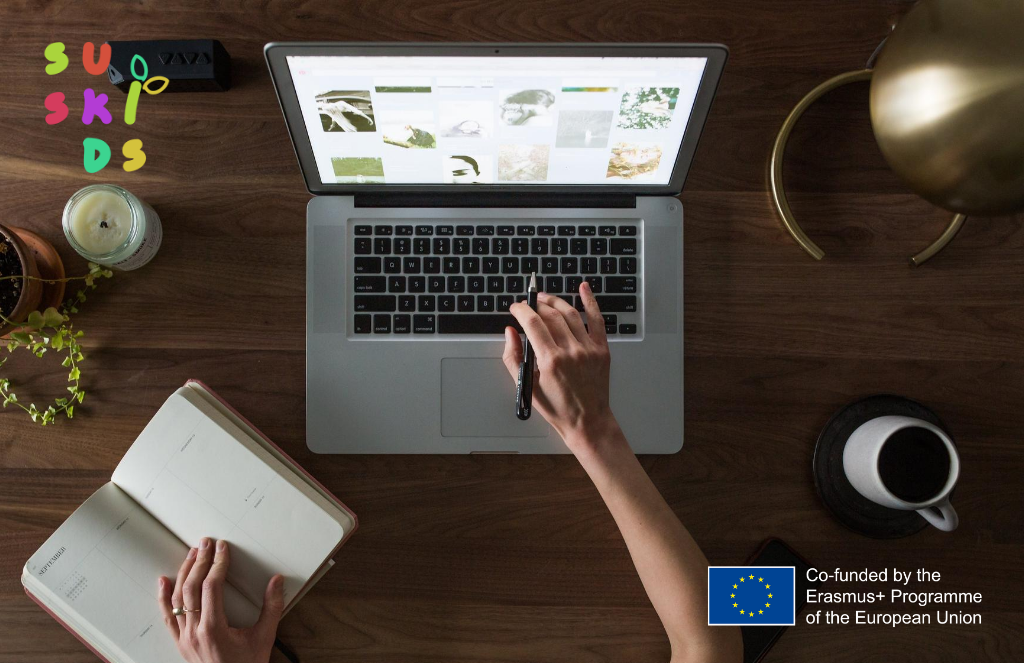
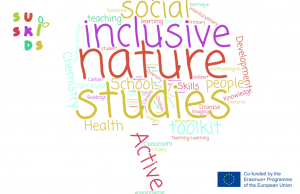 In recent years, there is a growing interest in achieving a sustainable society, also as a key requirement for the survival of the human race. This way, it is widely recognized that the education of people is crucial for the adoption of these values; in spite of this common interest, different approximations have arisen from distinct areas of knowledge, especially natural sciences, social sciences and economics, as well as pedagogics, to face this issue in the different stages of education.
In recent years, there is a growing interest in achieving a sustainable society, also as a key requirement for the survival of the human race. This way, it is widely recognized that the education of people is crucial for the adoption of these values; in spite of this common interest, different approximations have arisen from distinct areas of knowledge, especially natural sciences, social sciences and economics, as well as pedagogics, to face this issue in the different stages of education. 
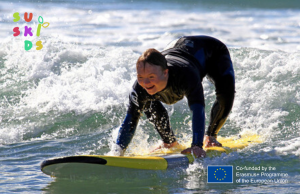 The partners of SUSKIDS project have collaborated to deliver the
The partners of SUSKIDS project have collaborated to deliver the 